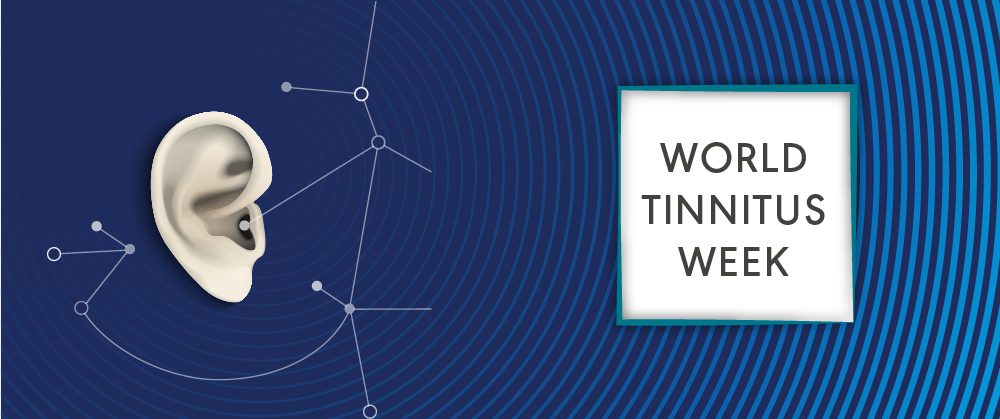As an audiologist, you have a number of options when helping individuals who present with tinnitus. In fact, with so many treatment approaches available, you may find yourself looking for the latest evidence-based practice to guide your treatment methods.
In recognition of World Tinnitus Week, we’re highlighting recent research on tinnitus that has been published in the Journal of Speech, Language, and Hearing Research (JSLHR) and the American Journal of Audiology (AJA). Check out the articles below, and see how you can use them to help individuals with tinnitus in the clinic.
New and Trending Tinnitus Resources
A Preliminary Analysis of the Clinical Effectiveness of Audiologist-Delivered Cognitive Behavioral Therapy Delivered via Video Calls for Rehabilitation of Misophonia, Hyperacusis, and Tinnitus: Cognitive behavioral therapy (CBT) is an important tool in managing tinnitus, misophonia, and hyperacusis. This preliminary analysis shows promising results for the delivery of CBT over video calls, which could help you reach new patients.
Efficacy of Amplification for Tinnitus Relief in People With Mild Hearing Loss: Many individuals with tinnitus experience mild hearing loss and could benefit from using hearing aids, but the efficacy of hearing aid use in this group has not been studied. The authors found that combining hearing aid use and informational counseling could improve tinnitus.
An Exploratory Study of Bimodal Electro-Aural Stimulation Through the Ear Canals for Tinnitus: This preliminary study explores a new method of tinnitus treatment—noninvasive auditory electrical stimulation of the ears. This solution could improve quality of life for people with tinnitus without necessitating intensive counseling.
Tinnitus in Military Service Members and Veterans
Incidence of Self-Reported Bothersome Tinnitus Versus Tinnitus Diagnosis Among U.S. Army Soldiers: Due to increased risk of tinnitus and other hearing issues among military service members, soldiers receive annual audiometric screenings. The authors (a) show that service members reported bothersome tinnitus twice as often as they received a diagnosis and (b) offer solutions to help better identify tinnitus in service members.
Understanding Tinnitus Clinical Care in the Veterans Health Administration (VHA) and Department of Defense (DoD): Overview of Survey Results: Tinnitus has been the most prevalent service-connected disability among U.S. veterans for more than 15 years. These researchers found that clinicians from the VHA and the DoD may need additional education about their role in providing tinnitus care.
More Tinnitus Resources
If you’re looking for more information on treating tinnitus in military service members and veterans, be sure to check out our Special Collection on the topic. You can also check out our previous coverage of World Tinnitus Week below.
People who visit ASHA’s audiologists with tinnitus concerns may be frustrated and seeking answers. We hope that these articles—and the additional resources that we provide—can help you continue serving individuals with tinnitus in a way that offers empathy and respect.
Previous Coverage of World Tinnitus Week
World Tinnitus Week and the ASHA Journals (2024)







